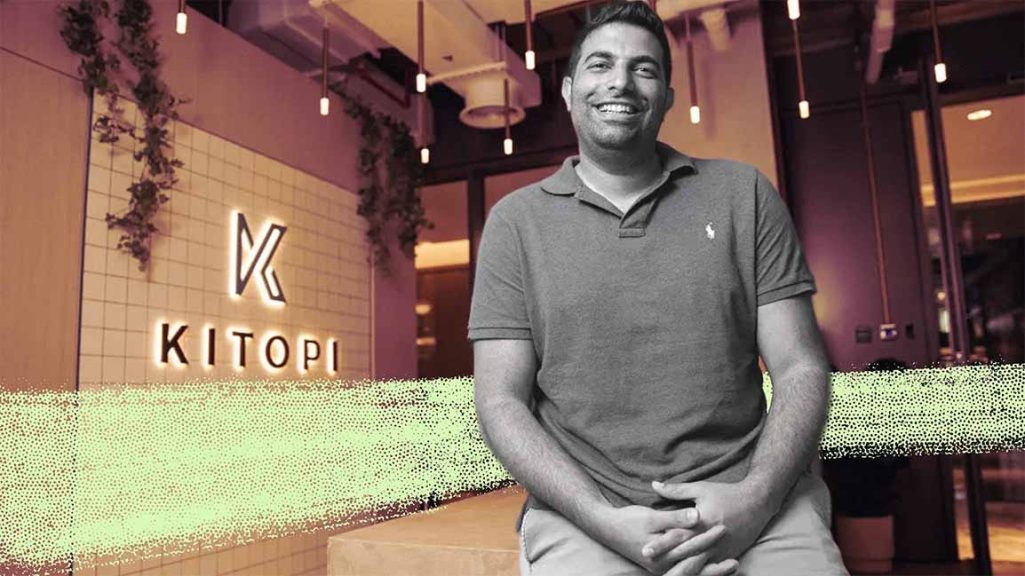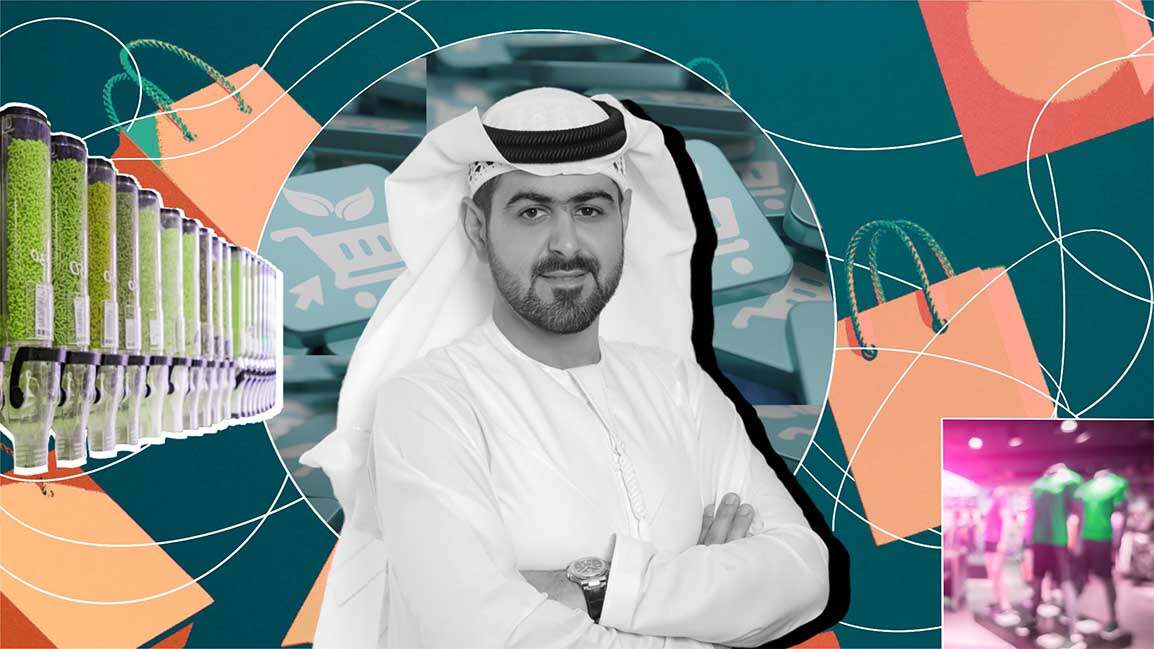- | 9:00 am
Sitting on cloud nine, there’s no stopping this UAE-based billion-dollar virtual kitchen
With over 80 cloud kitchens across the GCC, now Kitopi plans to expand its cloud kitchen model to Singapore and Malaysia.

Kitopi may not sound familiar, but the likelihood of you having eaten from its kitchen is high, as it prepares the food of several brands from one base. You may have noticed the blue sticker with a ‘K’ logo clasped to a delivery bag and read the tag: “Made in a Kitopi Kitchen” when you ordered from your favorite eatery.
If one were to look at food delivery trends over the past two years, there’s been an increase in demand for pizza and pasta, fancy Asian fusion meals, and biryani, to name a few. With options for food delivery booming, the Dubai-based cloud kitchen is riding the wave of increased demand, emerging as the region’s bridge to help restaurants scale. Founded by Mohamad Ballout, Saman Darkan, Bader Ataya, and Andy Andreas, the start-up is now looking to raise more cash to expand its footprint.
Kitopi, which stands for Kitchen Utopia, takes care of the entire operations process — from supply chain and staff training to food preparation and delivery. From an initial focus on on-demand food delivery, the business has since expanded its offerings to include meal plans and, more recently, dine-in concepts.
The pandemic changed the F&B landscape. As customer dependence on food delivery increased, cloud kitchens bridged the gap for restaurants keen to expand their reach without bothering about the costs of running brick-and-mortar facilities. Beyond the obvious cost savings, a cloud kitchen can produce food at scale. Its core ingredients are data, speed, and accuracy.
A cloud kitchen may be preparing meals from across 40-100 different food brands at any given point. That is the case at Kitopi, where on average, 3,000 to 4,000 meals are prepared per day at an eight-minute frequency per meal to reach customers within 30 minutes.
Equipped with state-of-the-art equipment, Kitopi has mastered the 360 express-restaurant experience. Today, the business ranks among the largest managed cloud kitchens in the Middle East, currently valued at $1 billion following its funding round of $415 million by SoftBank in 2021.
ON A MISSION TO SATISFY THE WORLD’S APPETITE
“On a mission to satisfy the world’s appetite” plastered outside its kitchen facility, Kitopi currently has nearly 200 brands across Saudi Arabia, Qatar, Bahrain, Kuwait, and the UAE on board. “We’ve invested in great brands across our markets, brands that have synergy with Kitopi’s operating platform and something unique to offer. We are typically looking for brands with great customer appeal and the potential to grow throughout our network and beyond,” says Mohamad Ballout, CEO and Co-Founder of Kitopi.
However, the journey has not been without stumbling blocks. Running a shadow kitchen is a ballgame that goes beyond perfecting meals. For Kitopi, initial hiccups ranged from selling the concept and cooking multiple cuisines in a single kitchen to expansion plans. Yet, the goal to “use learnings in the next opportunity” remained unchanged, says Ballout.
CREATING MEALS WITH IMPACT
While understanding the inner workings of a cloud kitchen involves looking at success through the lens of speed and efficiency and how easily replicable the model is in other geographies, Ballout points to the correlation between success and impact created by the business. “For us, success means being a responsible company that positively impacts the societies we operate in.”
To amplify its impact, Kitopi has committed to eliminating single-use plastics across the enterprise. “We are also partnering with vendors that can support our packaging resourcing needs across all brands and aim to be fully compliant by this year. On the other hand, we commit to always bringing our customers the best and freshest food through stringent procedures around sourcing, storage, and handling before, during, and after cooking,” explains Ballout.
As the world’s leading managed cloud kitchen platform today, with over 3,500 employees and over 80 cloud kitchens across the GCC, Kitopi is set to launch its first kitchens in Bahrain and Qatar, with further expansion to Singapore and Malaysia this year.
Ballout quickly points out that the thought process behind the expansion plan goes beyond the rinse and repeat strategy. “Before any market expansion, we are conscious of making sure we’ve earned the right to expand.”
This means being on the right trajectory, having the right people in place, a strong center of excellence, and the right standards and processes. “These elements will ensure we have the highest chance of success in new markets,” he says.
“Once this is established, we embark on a rigorous validation process and market research to ‘green light’ a country. We have a list of close to 20 dimensions to assess a market, ranging from market attractiveness and ease of business operation to expected profitability,” says Ballout. “This helps us objectively rank regional clusters and countries and their alignment with our business model and vision.”
With the global estimated cost of food waste at $400 billion (AED1.5 trillion), the MENA-based startup stands out from the crowd for its foresightedness. “As part of our promise of being a responsible and ethical company, reducing food waste is always at the top of our agenda,” says Ballout. “We are constantly evolving our food production processes and demand forecasting to reduce waste.”


































